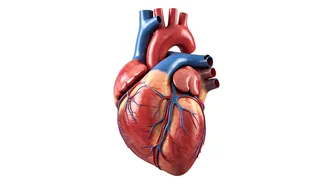Dietary Habits Explained
The cornerstone of heart health lies in your diet. Focusing on a diet rich in fruits, vegetables, and whole grains is vital. Replace saturated fats found
in processed foods and red meat with healthier options like olive oil and avocados. Including fiber-rich foods like oats and lentils helps lower cholesterol levels. Minimize the intake of added sugars and sodium, as excessive consumption can strain the cardiovascular system. Consider incorporating lean proteins such as chicken and fish. Portion control is also important; overeating, regardless of food quality, contributes to weight gain, which negatively affects heart health. Making these conscious choices can lead to significant improvements in cardiac health. These changes are sustainable when integrated gradually, establishing new, healthy habits over time. Remember, a balanced dietary approach should also be coupled with other lifestyle changes for optimal results.
Embrace Regular Exercise
Regular physical activity is a powerful tool in protecting your heart. Aim for at least 150 minutes of moderate-intensity exercise or 75 minutes of vigorous-intensity exercise each week. This could include activities like brisk walking, jogging, cycling, or swimming. Exercise helps lower blood pressure, improve cholesterol levels, and maintain a healthy weight. Start slowly and gradually increase the intensity and duration of your workouts to avoid injury. Incorporate both cardiovascular and strength training exercises for a balanced approach. Strength training, such as weightlifting or bodyweight exercises, builds muscle mass, boosts metabolism, and supports healthy bones. Even short bursts of activity throughout the day, like taking the stairs instead of the elevator, can be beneficial. Consider activities that you enjoy, making exercise a sustainable part of your routine. Consistency is key, so make exercise a non-negotiable part of your schedule.
Regular Health Check-ups
Regular health check-ups are essential for monitoring heart health. These check-ups allow you to identify potential issues early on, enabling timely intervention and preventing serious complications. Schedule annual check-ups with your doctor, including blood pressure and cholesterol screenings. If you have a family history of heart disease, consider more frequent check-ups. Discuss your risk factors with your doctor to understand your personal health profile. These factors include age, family history, and lifestyle habits. Consider specific tests like an electrocardiogram (ECG) or an echocardiogram to assess the heart's function. Early detection of conditions like high blood pressure or high cholesterol allows for effective management through lifestyle changes and, when necessary, medication. Proactive health management can significantly improve your chances of a long and healthy life. Stay informed and follow your doctor's recommendations for any required follow-up care.
Manage Stress Levels
Stress can significantly affect heart health. Chronic stress can raise blood pressure and increase the risk of heart disease. Practice effective stress-management techniques such as meditation, yoga, or deep breathing exercises. Engage in hobbies that bring you joy and help you relax. These can be reading, listening to music, or spending time in nature. Consider spending time with friends and family. Social connections provide support and reduce stress. If stress becomes overwhelming, seek professional help. Therapists or counselors can provide valuable support and teach coping mechanisms. Making time for relaxation, mindfulness, and healthy social activities can help you maintain a balanced lifestyle and reduce the negative effects of stress on your heart. Regular breaks from work and daily activities are essential. Incorporating these techniques into your daily life can help reduce stress and improve your overall well-being.
Quit Smoking Habits
Smoking is a major risk factor for heart disease. Quitting smoking is one of the best things you can do for your heart health. Smoking damages blood vessels, raises blood pressure, and increases the risk of blood clots. Seek support from healthcare professionals or support groups if you are struggling to quit smoking. Nicotine replacement therapy and medications can help manage withdrawal symptoms. Avoid exposure to secondhand smoke to protect your cardiovascular system. Within a year of quitting smoking, your risk of heart disease significantly decreases. The benefits of quitting smoking are immediate and long-lasting. Improve your lung capacity. Increase your energy levels. Smoking cessation can be challenging, but the rewards for your heart health are invaluable.





















